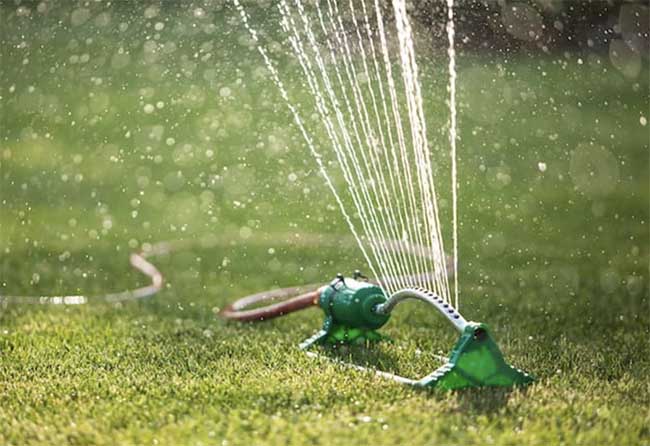When you fertilize your lawn, you give it the nutrients it needs to thrive. These nutrients are available to your grass for a limited time, and you need to act fast if you want your grass to take up as much of the goodness as possible. To ensure that the fertilizer does its job and that your yard stays healthy, follow these tips on when and how often to water after applying fertilizer.
Fertilize the Lawn
When you fertilize your lawn, you provide the nutrients it needs to thrive. This includes all the minerals and vitamins your lawn needs to produce lush and healthy grass. You can even choose organic or natural lawn fertilizers, which have natural ingredients that are better for the environment.
There are different types of lawn fertilizers you can choose from, depending on your lawn’s needs. You can use 34-0-0 fertilizer for quick growth in lawns, it will turn your lawns a dark green and grow to be a thick carpet. Whether you want to boost your grass’s health, combat weeds, or add nutrients to sandy soil, there’s an option for you.
What’s the Best Time to Water Your Lawn?
When you fertilize your lawn, it’s best to water it the same day or a day after applying. If you have time, you can water your lawn a day before you fertilize, as this will help the nutrients reach the roots even faster and boost your grass as it grows. When you water shortly after you apply fertilizer, it helps the grass’s root system absorb the nutrients faster, so you can see results sooner. If you don’t drink water after you apply fertilizer, the soil will be harder for the grass to absorb nutrients. If you don’t water your lawn after applying fertilizer, the nutrients will wash away, and your grass won’t reap the benefits.
How Often Should You Water After Fertilizing?
After fertilizing your lawn, you should water it. You can follow these rules to know how often to water your lawn after fertilizing:
- If you fertilize it in the spring or fall, you can water it once a week.
- If you fertilize in the summer, water it every two or three days.
- If you fertilize in the winter, you don’t need to water your lawn. Instead, please leave it to the rain, which is more than enough to keep your grass hydrated.
- When temperatures rise above 90°F, you should water your lawn once a day.
4 Steps for the Best Timing for Watering after Fertilizing
Suppose you want to water your lawn after fertilizing but don’t know when to follow these steps to find the best time to water.
Step 1 – Wait a few hours after fertilizing – Wait a few hours after applying the fertilizer before you water so the nutrients can settle into the soil.
Step 2 – Wait for the soil to cool down – Wait for the soil to cool down. Generally, soil temperature can be between 65 and 95 degrees for best fertilizer efficacy, but the soil should be between 60 and 80 degrees when you water.
Step 3 – Wait for the soil to be moist – Wait for the soil to be moist. Watering your lawn when the soil is too wet makes it hard for the grass to absorb water. The best time to water your lawn is when the soil is moist but not soggy.
Step 4 – Wait for the grass to be ready to take up the water – Wait for the grass to be ready to take up the water. You should generally water your lawn early in the morning when it’s cool. This gives the grass time to absorb the water so it’s ready for the next day.
When Should We Water?
So, when is the best time to water your lawn after fertilizing? Before you water, you must ensure that your soil is ready. You can test the moisture level in your soil with a moisture meter so you know when to water. When the soil is damp, it’s ready for the water. If your soil is soggy, water will just run off and not be absorbed by your lawn. If the soil is too dry, it’s harder for the grass to absorb water, which we want to avoid.
Summary
When you fertilize your lawn, the nutrients in the fertilizer are absorbed by the soil over time. For your lawn to reap the benefits of these nutrients, you need to water it. If you don’t water your lawn after fertilizing, the soil will be harder for the grass to absorb the nutrients, reducing your fertilizer’s effectiveness. By following these tips, you can ensure your lawn gets the most out of your fertilizer and stays lush and healthy.
